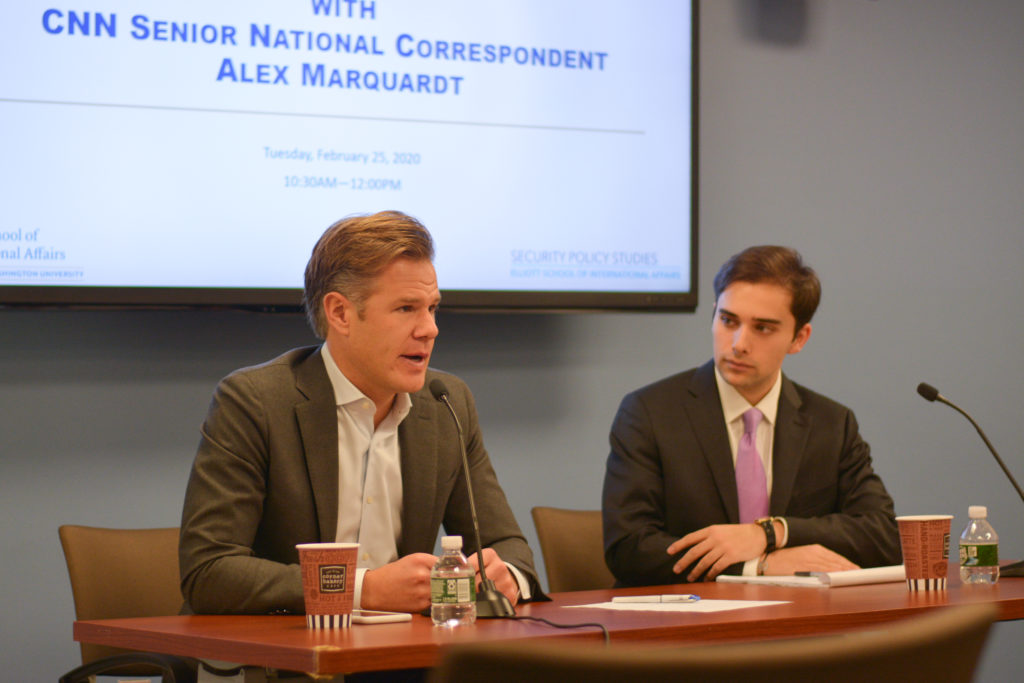A senior national correspondent at CNN discussed his experience reporting on war and national security at the Elliott School of International Affairs Tuesday.
Alex Marquardt, who covers national security for the news organization, spoke about the challenges of reporting in war and covering the U.S. intelligence committee at a roundtable discussion. About 15 people attended the event, held by the Elliott School’s Security Policy Studies Program.
In case you missed the event, here are some of the highlights:
Reporting on wars
Marquardt, previously a foreign correspondent for ABC News, said he hasn’t seen “good reporting” on the refugee crises in areas like Libya and Syria in a “long, long time” – not because the media does not want to cover these issues, but because there is too much happening around the world, he said.
“So much of what I’m doing is sort of emanating from what the Trump administration is doing and a reflection of its priorities,” he said. “And so when it comes to things like Syria and Idlib, sadly, that is not a huge priority in this administration, and so it’s not getting a lot of focus that it deserves.”
He said the hardest conflicts for him to cover were the Gaza War in 2014 and the ongoing Syrian Civil War. Marquardt said human stories often get lost in media coverage of the war because of hurdles like language barriers, explaining that his translation of a refugee mother’s comments doesn’t “land as powerfully” as the words in their original language.
Covering the intelligence community
Marquardt said he came back to the U.S. after years of covering foreign news because President Donald Trump is “the biggest story in the world.” He added that he hopes the media will prioritize international news more after Trump’s presidency.
“There’s just so much going on in Washington right now that again, for better or for worse – all of us in this room, I think, are incredibly fortunate to see it up close, whether it’s academically from your perspective or journalistically from mine,” Marquardt said. “It can be disturbing and scary at times, but it’s certainly a fascinating period to live through in Washington.”
He said covering intelligence is the “toughest beat in Washington” because it is more difficult to access sources – whereas reporters can “run up to people literally” to ask questions when covering Capitol Hill, for example. Marquardt said intelligence community staff in particular don’t want to take any risks and have been trained not to speak to the press.
Using social media
He said the “most important” factor in international journalism is having a team around you that is experienced both in journalism but also familiar with the region and its languages.
“Especially in this age of shrinking budgets, where you have fewer and fewer people covering larger and larger geographical areas – you’re often being parachuted into areas that you just don’t know, and so you’re reliant on the people around you,” he said.
Marquardt said social media has “a lot of garbage” but has made it possible for the public to locate the best local sources in foreign countries with a diminishing Western media presence. He added that he is a “Twitter evangelist,” adding that Twitter users can filter their content to see only reliable sources they trust and should cross-check information with other sites.
“The downside of social media is obviously that you’re going to get a lot of garbage and that you can’t believe it, but more than ever, the onus is on us to do our homework and figure out who you can believe,” Marquardt said.




